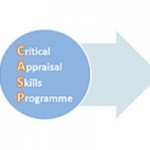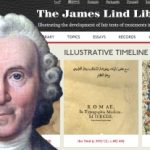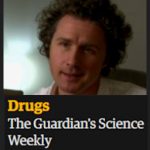
3 – More is not necessarily better
In this Chapter: Introduction (this page) Intensive treatments for breast cancer Mutilating surgery Bone marrow transplantation Dare to think about […]
| 0 Comments
4 – Earlier is not necessarily better
In this Chapter: Introduction (this page) Lessons from neuroblastoma screening Weighing benefits and harms Phenylketonuria screening: clearly beneficial Abdominal aortic […]
| 0 Comments
2 – Hoped-for effects that don’t materialize
In this Chapter: Introduction (this page) Advice on babies’ sleeping position Drugs to correct heart rhythm abnormalities in patients having […]
| 0 Comments
Informed Health Choices Podcasts
Each episode includes a short story with an example of a treatment claim and a simple explanation of a Key Concept used to assess that claim
| 1 Comment | Evaluated
Informed Health Choices Primary School Resources
A textbook and a teachers’ guide for 10 to 12-year-olds. The textbook includes a comic, exercises and classroom activities.
| 0 Comments | Evaluated
Ebm@school – a curriculum of critical health literacy for secondary school students
A curriculum based on the concept of evidence-based medicine, which consists of six modules.
| 0 Comments | Evaluated
Know Your Chances
This book has been shown in two randomized trials to improve peoples' understanding of risk in the context of health care choices.
| 0 Comments | Evaluated
Thinking, talking, doing science
An experimental educational intervention in teaching science at primary schools.
| 0 Comments | Evaluated
McMaster Evidence-Based Clinical Practice Workshop Resources – Therapy module
This is the therapy module resources provided to the attendees at the McMaster Evidence-Based Clinical Practice Workshop.
| 0 Comments
McMaster Evidence-Based Clinical Practice Workshop Resources – Systematic review module
The Systematic review module resources provided to the attendees at the McMaster Evidence-Based Clinical Practice Workshop.
| 0 Comments
Basic statistics for clinicians: 3. Assessing the effects of treatment: measures of association
Assessing the effects of treatment: measures of association.
| 0 Comments
The interpretation of clinical trials
Peter Greenberg’s 9-minute read on the interpretation of clinical trials.
| 0 Comments

Harm
A University of Massachusetts Medical School text on adverse effects of treatments.
| 0 Comments
What Evidence in Evidence-Based Medicine?
Philosopher John Worral’s reflections on the evidence used in Evidence-Based Medicine.
| 0 Comments
You Can’t Trust What you read about nutrition
Beware of misleading correlations between foods and chance associations with other factors.
| 0 Comments
Association is not the same as causation. Let’s say that again: association is not the same as causation!
This article explains how to tell when correlation or association has been confused with causation.
| 0 Comments
Using research evidence: a practice guide
NESTA’s guide to using research evidence to inform decisions in policy and practice.
| 0 Comments
Patients as Consumers: Physician’s conflicts of interest
James Rickert talks with Helen Osborne about looking at healthcare from the perspectives of both a patient and provider.
| 0 Comments
Policy: twenty tips for interpreting scientific claims
This list will help non-scientists to interrogate advisers and to grasp the limitations of evidence.
| 0 Comments
Understanding Health Research, a tool for making sense of health studies: Confounders
A confounder (or 'confounding factor') is something, other than the thing being studied, that could be causing the results seen in a study.
| 0 Comments
Understanding Health Research: how science media stories work
Understanding Health Research, a tool for making sense of health studies: how science media stories work.
| 0 Comments
Understanding Health Research: Correlation and Causation
A discussion of the difference between correlation and causation.
| 0 Comments
Understanding Health Research: A tool for making sense of health studies
An interactive online tool designed to help anybody to understand scientific health research evidence.
| 0 Comments
Ice bucket challenge “breakthrough”? Experts pour cold water on superficial reporting
Beware claims of treatment breakthrough. They’re probably not.
| 0 Comments
Reading the Medical literature
American College of Obstetricians and Gynaecologists (ACOG) introduction to critical appraisal and evidence-based medicine.
| 0 Comments
Evaluating relevance
How to evaluate relevance of research in Michigan State University’s Evidence-Based Medicine Course.
| 0 Comments
Limitations of current clinical practice
Discussion of the need to recognise the limitations of current clinical practice in Michigan State Univ’s Evidence-Based Medicine Course.
| 0 Comments
Who funded the study?
‘Ask for Evidence’ warning about the way that vested interests can distort research.
| 0 Comments
Anecdotes, testimonials and personal studies
‘Ask for Evidence’ warning that anecdotes are not a trustworthy basis for inferring treatment effects.
| 0 Comments
Randomised controlled trials (RCTs)
‘Ask for Evidence’ introduction to the concept of a randomised comparison.
| 0 Comments

Evidence for everyday health choices
A 17-min slide cast by Lynda Ware, on the history of EBM, what Cochrane is, and how to understand the real evidence behind the headlines.
| 0 Comments
Sunn Skepsis
Denne portalen er ment å gi deg som pasient råd om kvalitetskriterier for helseinformasjon og tilgang til forskningsbasert informasjon.
| 0 Comments
Dancing statistics: correlation
A 4-minute film demonstrating the statistical concept of correlation through dance.
| 0 Comments
Julia Belluz – Lessons from the trenches of evidence-based health journalism at Vox.com
20-minute talk by Julia Belluz on the need to bring the cultures of health journalism and EBM together.
| 0 Comments

How can you know if the spoon works?
Short, small group exercise on how to design a fair comparison using the "claim" that a spoon helps retain the bubbles in champagne.
| 0 Comments
English National Curriculum vs Key Concepts – Key Stage 3
A linked spreadsheet showing how the Key Concepts map to the Science National Curriculum in England at Key Stage 3 (ages 11-14).
| 0 Comments
DRUG TOO
James McCormick with another parody/spoof of the Cee Lo Green song ‘Forget You’ to prompt scepticism about many drug treatments.
| 0 Comments
Calling Bullshit Syllabus
Carl Bergstrom's and Jevin West's nice syllabus for 'Calling Bullshit'.
| 0 Comments
Tom Hanks and Type 2 Diabetes
A 50-minute illustrated talk by James McCormack prompted by Tom Hanks’ announcement that he had been diagnosed with Type 2 diabetes.
| 0 Comments
Bohemian Polypharmacy
James McCormack recruits help from Queen to warn of the dangers of ‘Bohemian Polypharmacy’ in music.
| 0 Comments
Choosing Wisely
James McCormack using song and dance to warn about the negative effects of overtreatment.
| 0 Comments
Like a bridge overdiagnosis
James McCormack with another of his brilliant parodies, warning about the dangers of becoming inappropriately labelled as ill.
| 0 Comments
‘Tricks to help you get the result you want from your study (S4BE)
Inspired by a chapter in Ben Goldacre’s ‘Bad Science’, medical student Sam Marks shows you how to fiddle research results.
| 0 Comments
It’s just a phase
A resource explaining the differences between different trial phases.
| 0 Comments
Fish oil in the Observer: the return of a $2bn friend
Ben Goldacre draws attention to people’s wish to believe that a pill can be the solution to a complicated problem.
| 0 Comments
Building evidence into education
Ben Goldacre explains why appropriate infrastructure is need to do clinical trials of sufficient rigour and size to yield reliable results.
| 0 Comments
Anecdotes are great – if they convey data accurately
Ben Goldacre gives examples of how conclusions based on anecdotes and biased research can be damagingly misleading.
| 0 Comments
Studies of studies show that we get things wrong
Ben Goldacre gives examples of how conclusions based on anecdotes and biased research can be damagingly misleading.
| 0 Comments
All bow before the mighty power of the nocebo effect
Ben Goldacre discusses nocebo effects, through which unpleasant symptoms are induced by negative expectations, despite no physical cause.
| 0 Comments
How do you regulate Wu?
Ben Goldacre finds that students of Chinese medicine are taught (on a science degree) that the spleen is “the root of post-heaven essence”.
| 0 Comments
Science is about embracing your knockers
Ben Goldacre: “I don’t trust claims without evidence, especially not unlikely ones about a magic cream that makes your breasts expand.”
| 0 Comments
NMT are suing Dr Wilmshurst. So how trustworthy are this company? Let’s look at their website…
Ben Goldacre celebrates Peter Wilmshurst, the doctor who blew the whistle on research misconduct in a study to which he was a contributor.
| 0 Comments
Screen test
Ben Goldacre notes that even if people realize that screening programmes have downsides, people don’t regret being screened.
| 0 Comments
Publish or be damned
Ben Goldacre points out the indefensible practice of announcing conclusions from research studies which haven’t been published.
| 0 Comments
Foreign substances in your precious bodily fluids
Ben Goldacre points out that there is no evidence giving strong support either to water fluoridationists or to anti-fluoridationists.
| 0 Comments
Is it okay to ignore results from people you don’t trust?
Ben Goldacre: why it’s important to consider vested interests when judging research, but not to dismiss research by people you don’t like.
| 0 Comments
Why won’t Professor Susan Greenfield publish this theory in a scientific journal?
Ben Goldacre challenges senior Oxford professor to publish the evidence supporting her claim that computer games cause dementia in children.
| 0 Comments
Weasels Are on the Loose
Weaseling is the use of certain words to weaken a claim, so that the author can say something without actually saying it and avoid criticism
| 0 Comments
Unsubstantiated and overstated claims of efficacy
A 32-slide presentation on misleading advertisements and FDA warnings prepared by PharmedOut.
| 0 Comments
Critical appraisal
University of New South Wales Medical Statistics Tutorial 4 addresses Critical Appraisal.
| 0 Comments
Introduction to Evidence-Based Medicine
Bill Caley’s 26 slides with notes used as an ‘Introduction to Evidence-Based Medicine’.
| 0 Comments
Detectives in the classroom
Five modules of materials for promoting epidemiology among high school students.
| 0 Comments
Not all scientific studies are created equally
David Schwartz dissects two types of studies that scientists use, illuminating why you should always approach claims with a critical eye.
| 1 Comment
Making the most of the evidence in education
A pamphlet to guide people using research evidence when deliberating about educational policies.
| 0 Comments
Cyagen is paying for citations
Pharmaceutical company Cyagen offers researchers and other writers $100 or more for citing their products in publications.
| 0 Comments
Generation R – The need to reduce waste in clinical research involving children
1/3, 14-min video at the launch of GenerationR, a network of young people who advise researchers.
| 0 Comments
Balancing Benefits and harms
A blog explaining what is meant by ‘benefits’ and ‘harms’ in the context of healthcare interventions, and the importance of balancing them.
| 0 Comments
Cancer Screening Debate
This blog discusses problems that can be associated with cancer screening, including over-diagnosis and thus (unnecessary) over-treatment.
| 0 Comments
Misconceptions about screening
Screening should not be for everyone or all diseases. It should only be offered when it is likely to do good than harm.
| 0 Comments
Randomized Control Trials
1/2, 40-min lecture on randomized trials by Dr R Ramakrishnan (Lecture 25) for the Central Coordinated Bioethics Programme in India.
| 0 Comments
Screening – CASP
This module on screening has been designed to help people evaluate screening programmes.
| 0 Comments
5 reasons why you might not get the best healthcare
Five reasons why patients may not always get the best care available.
| 0 Comments
Tamiflu: securing access to medical research data
A campaign by researchers has shown that Roche spun the research on Tamiflu to meet their commercial ends.
| 0 Comments
MMR: the facts in the case of Dr Andrew Wakefield
This 15-page cartoon explains the events surrounding the MMR controversy, and provides links to the relevant evidence.
| 5 Comments
Watson en busca de la evidencia
Cómic acerca de conflictos de intereses y búsqueda de información.
| 0 Comments

Why treatment comparisons must be fair
Fair treatment comparisons avoid biases and reduce the effects of the play of chance.
| 0 Comments
Avoiding biased treatment comparisons
Biases in tests of treatments are those factors that can lead to conclusions that are systematically different from the truth.
| 0 Comments
Reducing biases in judging unanticipated effects of treatments
As with anticipated effects of treatments, biases and the play of chance must be reduced in assessing suspected unanticipated effects.
| 0 Comments
Recognizing researcher/sponsor biases and fraud
The vested interests of researchers and organizations tend to be reflected in reports of treatment research in which they are involved.
| 0 Comments
Video games and health improvement: a literature review of randomized controlled trials
This is a critical appraisal of a non-systematic review of randomized trials of video games for improving health.
| 0 Comments
Why treatment comparisons are essential
Formal comparisons are required to assess treatment effects and to take account of the natural course of health problems.
| 0 Comments
Why treatment uncertainties should be addressed
Ignoring uncertainties about the effects of treatments has led to avoidable suffering and deaths.
| 0 Comments
Motivational Deficiency Disorder – a satirical look at disease mongering
Ray Moynihan’s 4-min video on ‘Motivational Deficiency Disorder’, illustrating ‘disease-mongering’.
| 0 Comments
Making Sense of Screening
Screening tests can cause harm. This guide helps you to make sense of claims about screening for health conditions.
| 0 Comments
Interactive PowerPoint Presentation about Clinical Trials
An interactive Powerpoint presentation for people thinking about participating in a clinical trial or interested in learning about them.
| 0 Comments
Testing Treatments
Testing Treatments is a book to help the public understand why fair tests of treatments are needed, what they are, and how to use them.
| 0 Comments
Annals Graphic Medicine: How screening is portrayed in the media
A cartoon series addressing the theme "Earlier is not necessarily better".
| 0 Comments
Effectiveness Delusions
Cherry picking the results of people in sub-groups can be misleading.
| 0 Comments
House Calls Please
Beware reliance on 'experience' without reference to relevant evidence.
| 0 Comments

Personal “No Worse”
People with vested interests may use misleading statistics to support claims about the effects of new treatments.
| 0 Comments
Avoid despair about biases
People who choose to ignore biases may do themselves and others harm.
| 0 Comments
Does it work?
People with vested interests may use misleading statistics to support claims about the efects of new treatments.
| 0 Comments
Thousand dollar placebo
People with vested interests may take advantage of peoples' fears or hopes..
| 0 Comments
Promising treatments
'Promising' treatments greatly outnumber actual advances in treatment.
| 0 Comments
Right to remain anxious
Earlier testing is not always better, and can lead to overdiagnosis, overtreatment and anxiety.
| 0 Comments
De-awareness day
Earlier testing is not always better, and can lead to overdiagnosis and overtreatment.
| 0 Comments
Alicia
Earlier testing is not always better, and can lead to overdiagnosis and overtreatment.
| 0 Comments
Peer-Review
Even quality control steps, such as peer-review, can be affected by conflicts of interest.
| 0 Comments
Gertrud
Exaggeration and hopes or fears can lead to unrealistic expectations about treatment effects.
| 0 Comments


Blackboard Professor
Beware reliance on 'experience' with no reference to relevant evidence.
| 0 Comments


Soy Lattes
Just because two things are associated, doesn't mean one thing caused the other.
| 0 Comments
Cause and Effect
Just because two things are associated, doesn't mean one thing caused the other.
| 0 Comments

Attrition bias, publication bias, comparator bias and commercial bias
6 slides and a 3-min commentary on attrition bias, publication bias, comparator bias and commercial bias (from Univ Mass Med School).
| 0 Comments
Understanding Overdiagnosis bias
Gilbert Welch’s 14-min video discussing the risks of overdiagnosis bias and screening.
| 0 Comments
Understanding lead-time bias
Gilbert Welch’s 10-min video explaining why survival ALWAYS rises following early detection -- even if no one is helped.
| 0 Comments
Testing Treatments Audio Book
The Testing Treatments Audiobook enables visitors to the TTi site to select whichever chapters in the book they would like to listen to.
| 0 Comments
Science fact or fiction? Making sense of cancer stories
A Cancer Research UK blog, explaining how to assess the quality of health claims about cancer.
| 0 Comments
DISCERN online
A questionnaire providing a valid and reliable way of assessing the quality of written information on treatment choices.
| 0 Comments
7 words (and more) you shouldn’t use in medical news
A webpage explaining that dramatic effects of medical treatments are very rare.
| 0 Comments
Observational Studies – does the language fit the evidence?
A webpage explaining observational studies and their advantage and disadvantages.
| 0 Comments
John Ioannidis, the scourge of sloppy science
A 8 min podcast interview with John Ioannidis explaining how research claims can be misleading.
| 0 Comments
Beware conflicts of interest
In this 5-min videoed TED talk, psychologist Dan Ariely explains how conflicts of interest can bias research.
| 0 Comments
Science Weekly Podcast – Ben Goldacre
A 1-hour audio interview with Ben Goldacre discussing misleading claims about research.
| 0 Comments